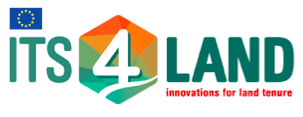UT is recognized as a leading entrepreneurial university in the EU: the campus is home to around 100 businesses, including student-run businesses, and more than 700 successful spin-off companies have been generated. Under the motto, high-tech – human-touch, together, 2,900 scientists and professionals carry out ground-breaking research and provide inspiring teaching for more than 9,000 students. The Faculty of Geo- information Science and Earth Observation (ITC) of UT focuses on international research, education and capacity development – and maintains over 60 years specialized experience in development cooperation in sub Saharan Africa. Its international training programmes offer some 40 different specialization courses, at MSc and PhD levels. ITC generates tools, models, and software for remote sensing, GIS, and spatial data integration. ITC is a recognized global leader in the land administration domain: led by Prof Zevenbergen, it has a dedicated MSc specialization and flourishing research program that includes a decades long industry partnership with the international arm of Dutch Kadaster. Over the last decade the group has been at the centre of theoretical and practical developments in land administration, including playing a central role in the creation of the ISO LADM standard (19152), the development of first ever open-source land tenure recording software (STDM) (in collaboration with UN-Habitat), and conceptual developments in pro-poor land administration and fit-for-purpose land administration, developed in collaboration with GLTN and FIG respectively. Likewise, the department of Earth Observation Science (EOS), led by Prof. Vosselman, is a recognized leader in automation techniques for remote sensing and photogrammetry. UT maintains significant expertize in leading large-scale ICT projects based in sub Saharan Africa, and regularly leads and participates in projects with diverse consortium partners and multi-million Euro budgets.
UT acts as the project coordinator, including the dissemination coordinator role, and as contact point to the EC: it leads WP1. The ITC Faculty is formally organized to support involvement and leadership of ICT capacity development activities in the developing context: its domain experience, expertise, networks, and work processes make it the ideal host for its4land. UT has successfully managed such research projects at national, EU, and international levels – both recently and over previous decades. UT also leads two work packages relating to its areas of expertise in remote sensing land tenure recording processes: UAV processing (WP4) and automated feature extraction (WP5). It maintains the in-house skills, knowledge, diverse cultural understandings, to conduct project work simultaneously in the EU and East Africa – with stakeholders (including PhD staffers) from diverse backgrounds.


Recent Comments